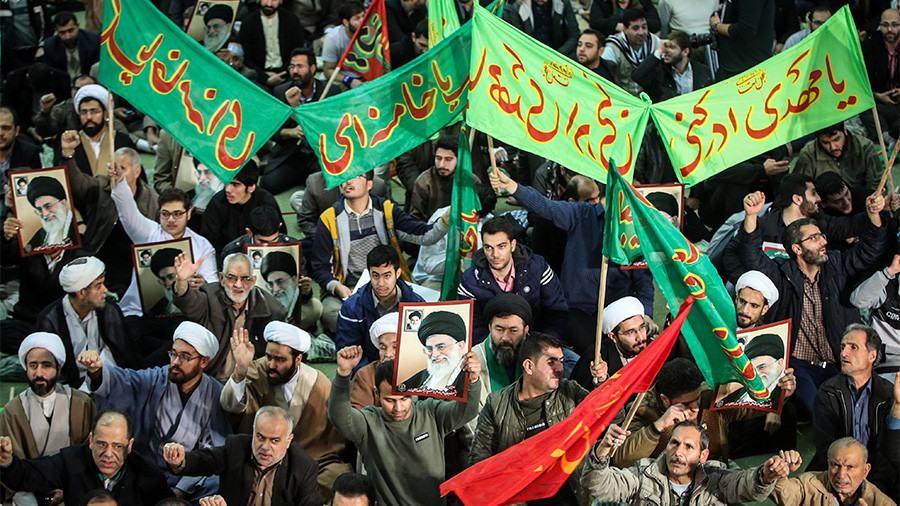
This article is more than
8 year oldThe ongoing protests in Iran started as a rally against soaring food prices and unemployment, snowballing into the biggest anti-government movement in eight years. On Saturday, according to videos posted on social media, the protesters, who appear to be predominantly young and male, were seen jostling with riot police, throwing stones, burning fires, and hauling down a billboard of Ayatollah Ali Khamenei.
In several clips, crowds are heard calling for the overthrow of the country’s supreme leader and also President Hassan Rouhani, as well as chanting “No to high prices!” Some Tweets and Facebook posts claimed that at least two demonstrators have been injured or shot dead by Revolutionary Guards in Daroud, a city in the central Lorestan province, but there has been no official confirmation by media or the authorities.
The government said without prior permission, all such gatherings are “illegal,” and have stated it has been orchestrated by “anti-revolutionary forces” based abroad.
"Police and security forces have tried to manage conditions. We have received reports of calls to gather, cyber and social media based, and such calls and any gatherings resulting therefor, are certainly illegal," Interior Minister Abdolreza Rahmani Fazli said in a statement Saturday afternoon.
State television said 1,200 pro-government counter-protests had been staged Saturday. Official media also reported that about 4,000 people gathered in central Tehran, many holding up national flags and portraits of the theocracy’s religious leader Khamenei.
A final resolution at the rallies, cited by the Fars news agency, called for “unity and integration” and urged “vigilance”against provocateurs.

The demonstrations were sparked by a seemingly perfect storm of circumstances. The anti-government rally was scheduled to commemorate the eighth anniversary of the 2009 election vote protests mid-week, while Friday and Saturday fell on the days of Ashura, a religious Islamic date and national holiday. But the protests were given immediate impetus by the recent hike of staple food prices that saw the cost of everyday items grow by up to 40 percent. The immediate economic demands and anti-corruption slogans coalesced with political chants at most rallies.
Read More (...)